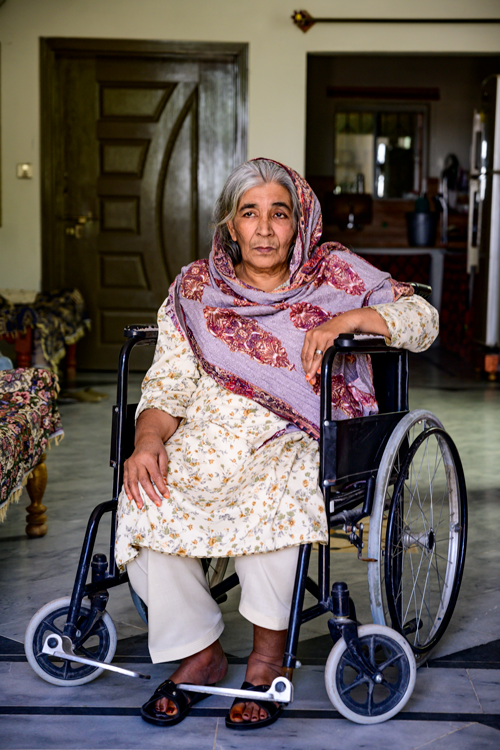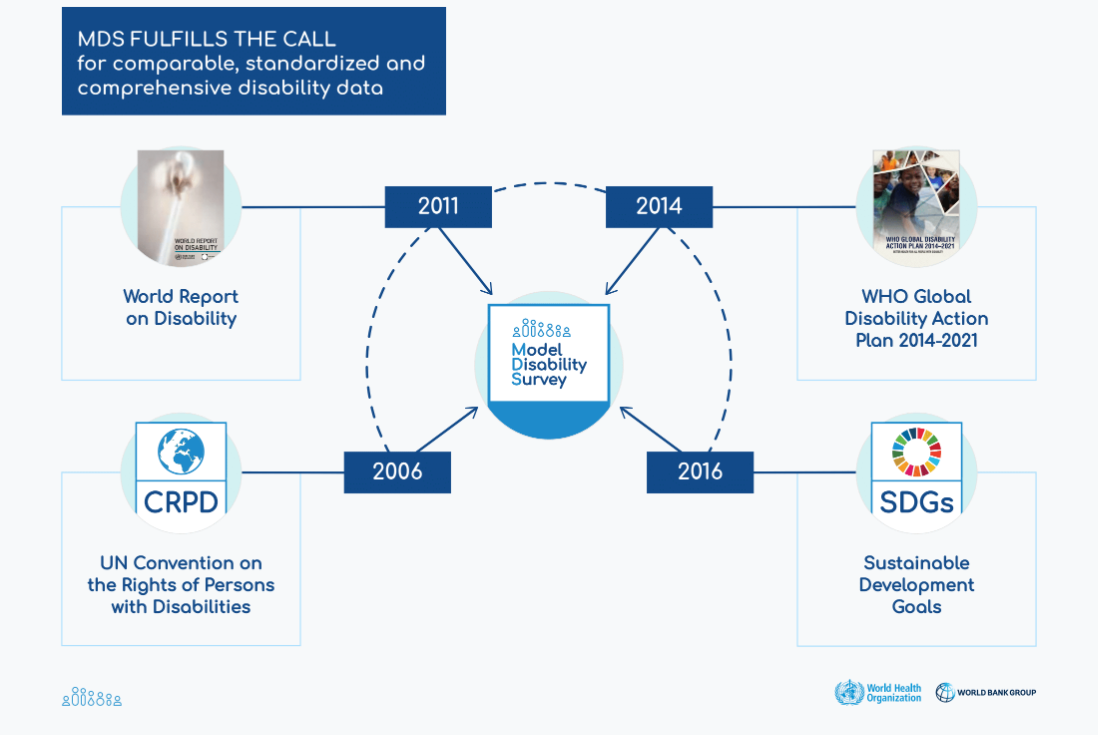The WHO Functioning and disability disaggregation tool (FDD11) is a valid and reliable disability disaggregation instrument that countries can integrate into existing tools or censuses. FDD11 is a short 11-question instrument derived from the WHO model disability survey – a standalone WHO household survey that has been validated and broadly implemented in countries. The items included in FDD11 have been carefully and systematically selected from the MDS to capture the experience of disability by assessing body functions as well as limitations in activities and participation. The tool is designed to be used as a tool for disaggregation of other indicators by disability.
FDD11 data entry form
The FDD11 data entry form contains an underlying algorithm, where users of FDD11 can import data and automatically obtain the disability score for each participant, as well as a figure with distribution of disability in the assessed population. The Excel file contains instructions for use and can be downloaded below.
For more information, please contact the WHO Disability team at disability@who.int





